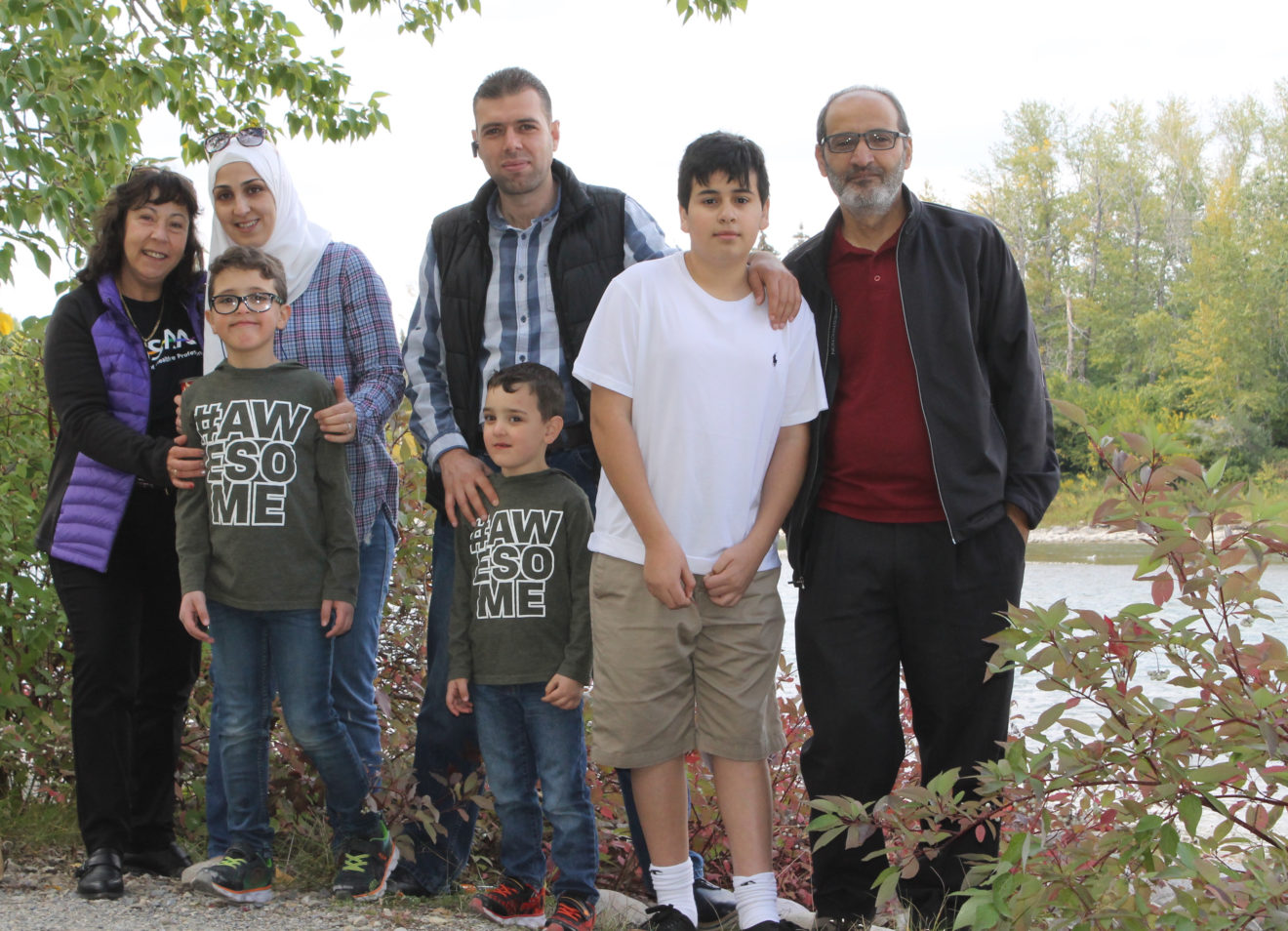What’s your dream?
Maybe you fantasize about winning the lottery and buying a beachfront home in Hawaii or a log cabin in the woods. Maybe it’s being able to afford to take your entire extended family on a five-star cruise. Or is it simply that you’ll have enough money to quit work?
What if your dream was to lead a normal, ordinary life? To get up and go to work six days a week, to pack your kids’ lunches as they head off to school or daycare, to have your health-care needs met, to buy a used car, to have a home you can afford?
What if your dream was to not have bombs raining down on your neighbourhood, to not be fleeing from war to save your lives, to not be living in a refugee camp or be constantly harassed by security forces, to not lose a child because you had no access to health care?
Because of the Health Sciences Association of Alberta (HSAA), one family of refugees from the brutal war in Syria has achieved that dream, the dream of living an ordinary, safe life. They became financially self-sufficient in just one year, they pay taxes, they contribute to the local economy and they are happy members of their community.
The father, now aged 34, works six days a week at a car dealership, doing vehicle maintenance, vehicle appraisals and working in the parts department.
“It’s a very demanding job, it’s not easy,” says Ayed Saad, an HSAA member who is on the union’s Social Justice committee and has been involved from the beginning in the sponsorship to bring the family to Calgary. “He likes his job because he is learning.”
The mother, who is 28, has been taking English classes at Columbia College (finishing in the top two in every class!) and plans to train to become a teacher’s assistant.
Their youngest son is four and is going to daycare. The older son in seven and is doing well in school. He had some dental issues, which have been resolved. It also turned out that he needed glasses and, once they were supplied, he began to settle in quickly.
Faika Satterthwaite, HSAA member and chair of the Social Justice committee, says: “Before, I would visit the family and he would be bouncing off the walls. Now, when I visit, he opens the door, gives me a hug and gets his backpack, we get out his schoolbooks and we talk or read.”
She feared he would have been traumatized by his experiences as a refugee child and that would make adapting to Canada difficult. However, the glasses, along with getting psychological testing and support, means he’s already a regular Canadian kid.
He arrived here from the Middle East in the middle of winter and with no English, but it wasn’t long before teachers were having to persuade him to give up playing in the snow and go back to class. If that isn’t being a Canadian kid, what is?
Perhaps the biggest difference for the family has been the feeling of safety. When they first fled their home, they did so to escape bombs and fighting. When they were refugees in Lebanon, their infant daughter died because a lack of medical care. They lived in constant fear thanks to the harassment refugees experienced there, says Saad.
“In Lebanon, the security people would always stop them and check their papers. They weren’t sure they would be allowed to stay,” he says. “Once, when he (the father) went to cash a cheque from Syria, the police were called and interrogated him for three hours. When I helped him open a bank account here, he couldn’t believe how easy it was.”
With all the negative headlines we see about refugees coming to Canada or the U.S., the experience of the family sponsored by HSAA holds an important lesson.
Refugees are not a drain on Canada or its support system. After just one year and at a cost of less than $30,000 from HSAA’s Humanitarian Fund, a family of four has become financially stable and self-sufficient. That relatively small investment has created a safe present and a bright future for four people.
In only one year, they are earning money, spending money that boosts the local economy and they are paying taxes that support other Canadians.
Asked if they are proud of the role HSAA played in making this dream come true, Satterthwaite and Saad agree enthusiastically. It’s not just about the money the union gave. They didn’t want the union to simply write a cheque to a charity and walk away.
They felt it was important to do the hard work of sponsorship, to deal with the Byzantine bureaucracy involved, to work with other volunteer members to find a home and furnish it, to help the family every step of the way before and after they arrived – to become their friends as well as their sponsors.
If you simply give money, you don’t get to see the family succeed and to watch the children play. That’s where you really see the value of what HSAA has done.
For those who question whether this is what unions should be doing, Satterthwaite and Saad says an emphatic “yes.” This is what unions have always done. They exist to improve the lives of everyone, not just their own members. That’s what solidarity really means. Satterthwaite offered a heart-felt thank you to all HSAA members and staff for helping to save four lives.
Satterthwaite says: “The most important thing to remember is that because of their status as refugees, they are no less human beings than you or I … We are treating them just like we would treat a neighbour in our community or a family member. We do this because we are humanitarians – and if unions aren’t humanitarians, who is?”
